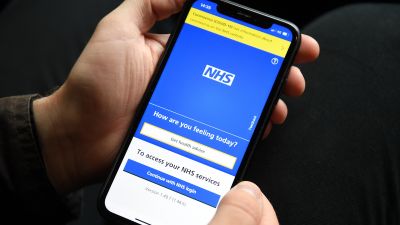Covid vaccine passports: Brits can use NHS app when travelling to Barbados, Greece and Turkey

Several countries have agreed to recognise the NHS app as a Covid vaccine passport for British tourists.
Holidaymakers from the UK will be able to use the app to prove they are vaccinated when travelling to these countries: Barbados, Croatia, Greece, Turkey, Gibraltar, Iceland, Moldova, Bulgaria, and Estonia.
Cabinet office minister Michael Gove, who is undertaking a review on the effectiveness of certificates for people who have been vaccinated or tested negative for coronavirus, made the announcement as he was giving evidence to the Commons Public Administration and Constitutional Affairs Committee.
He said discussions are ongoing with other countries to ensure UK vaccine passports would be recognised.
Covid passports: How close are we to getting them in the UK and what will they look like?
How to use your NHS app as a vaccine passport for foreign travel
Mr Gove said vaccine passports can also help “economic and social life" in the UK "return more quickly”.
He said: “We have been looking at every stage the impact certification might or might not have on the economy.
“So, to take a case in point, if it is the case that we want to see the restoration of Premier League football, which I certainly do, then in order for that to happen we would want to have, and indeed Premier League teams would also want to have, their stadia full to maximum capacity.
“Certification may play a role in that if the alternative were to, for example, to continue with social distancing and other forms of restrictions such as crowd capacity limits.
Coronavirus: What you need to know - Listen in for the latest information, advice and analysis on the pandemic
“So, in that sense, and that is just one example, the deployment of certification and the investment in that infrastructure would enable the economic and social life of the country to return more quickly and safely.”
The review into Covid status certification, which had been due to report this month, has been delayed until after Commons recess in the week of June 7.
He said use of the passports do not necessarily need to be linked to the next stage of the roadmap from June 21 and said the scheme is intended "for a time-limited period".
He referred to the Israeli “green pass” model, which has recently been suspended due to the high uptake of vaccinations in the country.
Mr Gove said vaccine passports can "dramatically reduce the risk" even though two doses of Covid vaccines do not guarantee that a person will not catch Covid-19.
How are other countries using coronavirus vaccine passports and certificates?
Wetherspoon boss says vaccine passports would be ‘the last straw’ for pubs
Dr Susan Hopkins, the interim chief medical adviser for NHS Test and Trace, said data indicated that opening up events to vaccinated people or those who could prove they had either previously contracted Covid or were negative could reduce the transmission risk by as much as half.
The Public Health England official told MPs: “The vast majority of events that people go to are smaller events, meeting indoors – that is where the vast majority of transmission occurs.
“But clearly the risk of a large event, both travelling to the event, the socialising around the event and the event itself, can potentially be reduced by the use of testing, vaccination or alternatively knowing people’s prior infection status.
Islands could join green list even if mainland remains amber, says Grant Shapps
Spain to lift travel restrictions for Brits but it remains on UK government's amber list
“All of those things together are likely to reduce the risk of transmission by 30%-50%.
“Based on the B.117 (the Kent variant) – we don’t have the data for the latest (Indian) variant that’s emerging – based on that, a negative lateral flow test shortly before entering the event reduced transmission by about 30%-50%, and obviously we know if you’ve had previous infection in the past, and we’ve now set that out to 180 days, then the risk of reinfection is extremely low.
“Probably in the order of less than 20% of people get reinfected in that period of time, so all of those things mean we have an idea about the risk of infection of those individuals attending an event, and therefore the risk reduction by having all of those things in place.”
Travellers from Britain to be barred from Germany as it declares UK 'virus variant area'
Heathrow to open dedicated arrivals facility for red list travellers
Mr Gove said discussions are ongoing with devolved nations and there are differences between how the UK and Scottish governments want to recognise Covid status.
He said: “The Scottish Government does believe in the potential for domestic certification to play a role but they take a slightly different approach to the potential delivery of it.
“In the meantime, we have an agreed approach towards recognising, or working towards an agreed approach towards recognising, a paper-based recognition of vaccination and testing because, of course, one of the big events coming up is the Scotland-England match in the Euros at Wembley and we want to make sure that there are, in every sense of the word, a healthy contingent of Scottish fans at Wembley for that match.”